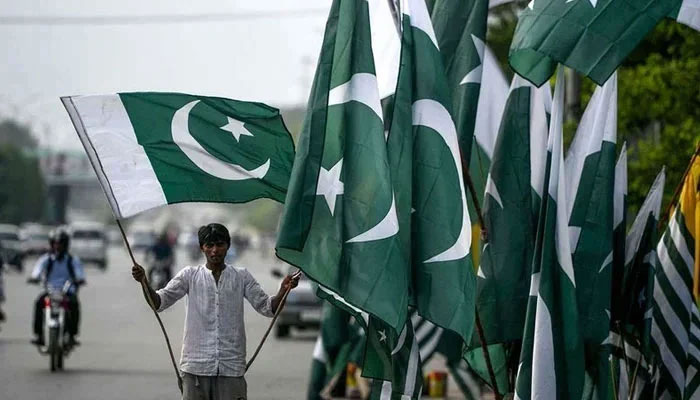Populism
LAHORE: Populist leaders around the world are gaining ground by abandoning the economistic arguments advanced by experts and invoking thought based on superstition that capitalism had decisively quelled. Pakistan is no exception.
Populism is based on the general aspiration of the people. It differs in countries. In the West, putting brakes on immigration is popular among the local population. Populist leaders gain sympathy of the electorate by advocating strict anti-immigrant policies. Some succeed in this endeavour.
While Western countries may not immediately feel the impact of this policy, since all developed western economies have an older population, they need a constant inflow of young immigrants to push economic growth. For now, populist leaders are in the driving seat.
In India, populism is based on religious hatred. But the country is the fastest growing economy in the world. While extremism is not in the long-term interest of Indians, for now populist leaders easily get things done their way as the majority is with them. Again, no one is bothered about the long-term impact of populism even though, analysts fear, India could lose its growth path in the next decade if it keeps excluding its minorities that constitute 30 per cent of its population. Indian leaders are not bothered about what will happen a decade later.
Pakistan is also under the influence of populist rhetoric, but the problem is that we cannot afford populist policies. We are already a country short of resources and foreign exchange. To keep Pakistan intact, we need to eliminate terrorism. We are in dire need of getting rid of the unnecessary baggage of loss-making state-owned enterprises (SOEs) -- a decision which is opposed by populists.
We have to tax agriculture -- a proposal which is again strongly opposed by populists. We need to bring traders into the tax net, but they hide behind populists. Tracing and tracking all economic activities is needed, but tobacco manufacturers and dealers in Khyber Pakhtukhwa (KP) become hostile if they are forced to pay actual taxes through a track and trace system.
Even though it is well known that economic inequality in Pakistan is unacceptably high, the culture of bowing to populist sentiments has further increased the gap between the rich and the poor. We lack resources that promote growth. Traditional strategies such as expanding and improving the quality of education and offering cash assistance to low-income households can be nominally effective, if their is no or nominal GDP growth.
These efforts are not sufficient to reduce inequality in all settings. To achieve this, we must promote economic growth that can generate more productive (and formal) jobs and adopt a new generation of fiscal policies that give everyone a seat at the table.
Our current economic situation does not allow us to adopt policies that provide relief to some section for a while but bring miseries for the majority for a long time to come. We must correct our past mistakes of supporting law-free capitalism where a winner-takes-all approach at the expense of consumers, workers, and overall growth reigns supreme. This is the time to change for the country’s good.
-
 Denzel Washington Surprises LeBron James
Denzel Washington Surprises LeBron James -
 Cillian Murphy's Hit Romantic Drama Exits Prime Video: Here's Why
Cillian Murphy's Hit Romantic Drama Exits Prime Video: Here's Why -
 Paris Hilton Reveals What Keeps Her Going In Crazy Schedule
Paris Hilton Reveals What Keeps Her Going In Crazy Schedule -
 Deep Freeze Returning To Northeastern United States This Weekend: 'Dangerous Conditions'
Deep Freeze Returning To Northeastern United States This Weekend: 'Dangerous Conditions' -
 Inside Dylan Efron's First 'awful' Date With Girlfriend Courtney King
Inside Dylan Efron's First 'awful' Date With Girlfriend Courtney King -
 'Sugar' Season 2: Colin Farrell Explains What Lies Ahead After THAT Plot Twist
'Sugar' Season 2: Colin Farrell Explains What Lies Ahead After THAT Plot Twist -
 ‘Revolting’ Sarah Ferguson Crosses One Line That’s Sealed Her Fate As Well As Andrew Mountbatten-Windsor’s
‘Revolting’ Sarah Ferguson Crosses One Line That’s Sealed Her Fate As Well As Andrew Mountbatten-Windsor’s -
 AI Rivalry Heats Up As Anthropic Targets OpenAI In Super Bowl Ad
AI Rivalry Heats Up As Anthropic Targets OpenAI In Super Bowl Ad -
 Kate Middleton, Prince William Share Message Ahead Of Major Clash
Kate Middleton, Prince William Share Message Ahead Of Major Clash -
 Is Dark Matter Real? New Theory Proposes It Could Be Gravity Behaving Strangely
Is Dark Matter Real? New Theory Proposes It Could Be Gravity Behaving Strangely -
 Viral AI Caricature Trend: Is Your Personal Data Really Safe?
Viral AI Caricature Trend: Is Your Personal Data Really Safe? -
 Lil Jon’s Late Son, Nathan Smith Spoke Highly Of His Father Before His Tragic Death
Lil Jon’s Late Son, Nathan Smith Spoke Highly Of His Father Before His Tragic Death -
 China Boosts Reusable Spacecraft Capabilities By Launching For The Fourth Time
China Boosts Reusable Spacecraft Capabilities By Launching For The Fourth Time -
 Bianca Censori On Achieving 'visibility Without Speech': 'I Don't Want To Brag'
Bianca Censori On Achieving 'visibility Without Speech': 'I Don't Want To Brag' -
 Skipping Breakfast? Here Are Some Reasons Why You Shouldn't
Skipping Breakfast? Here Are Some Reasons Why You Shouldn't -
 'Concerned' Prince Harry Future Plans For Lilibet, Archie Exposed
'Concerned' Prince Harry Future Plans For Lilibet, Archie Exposed




